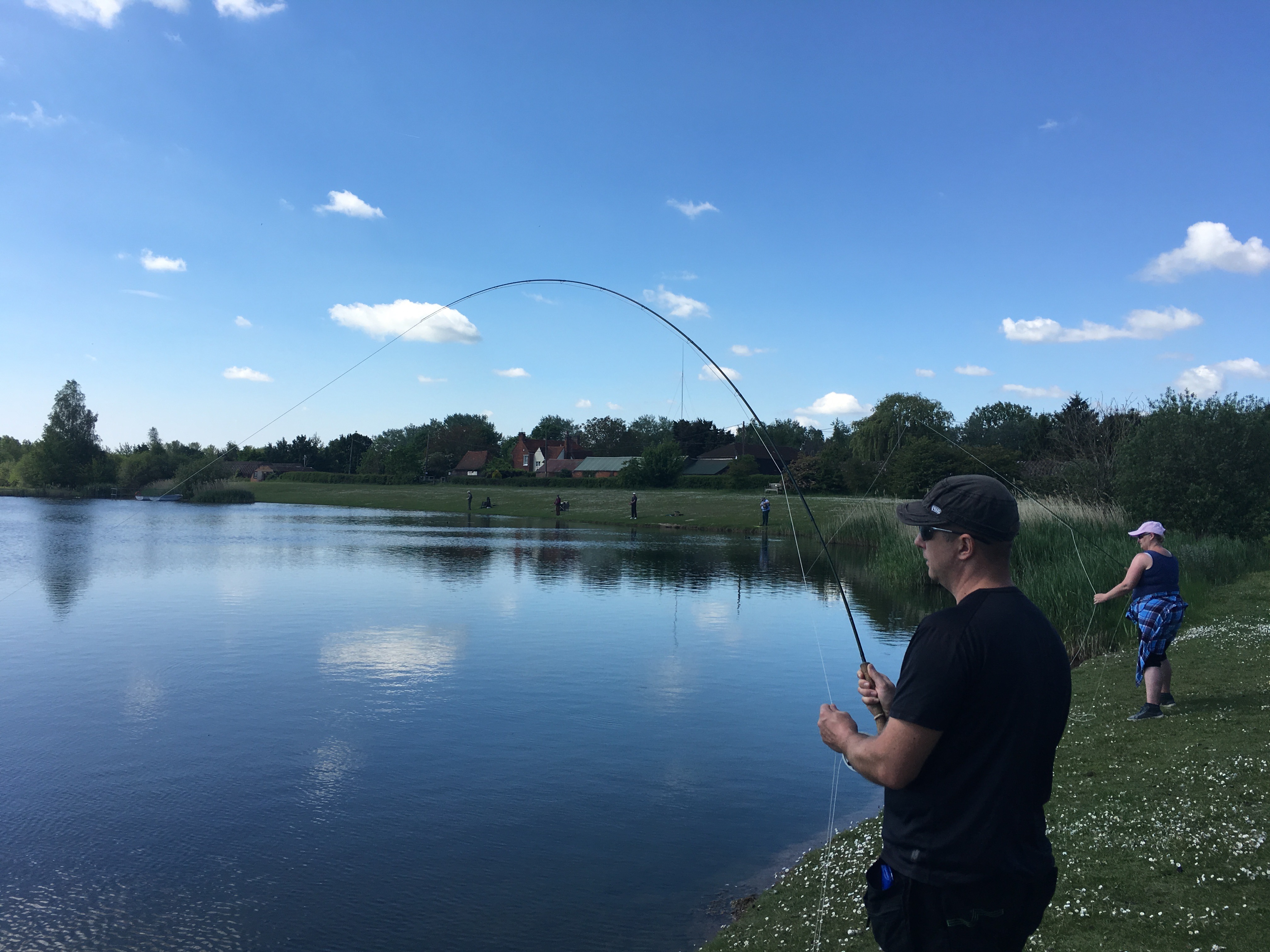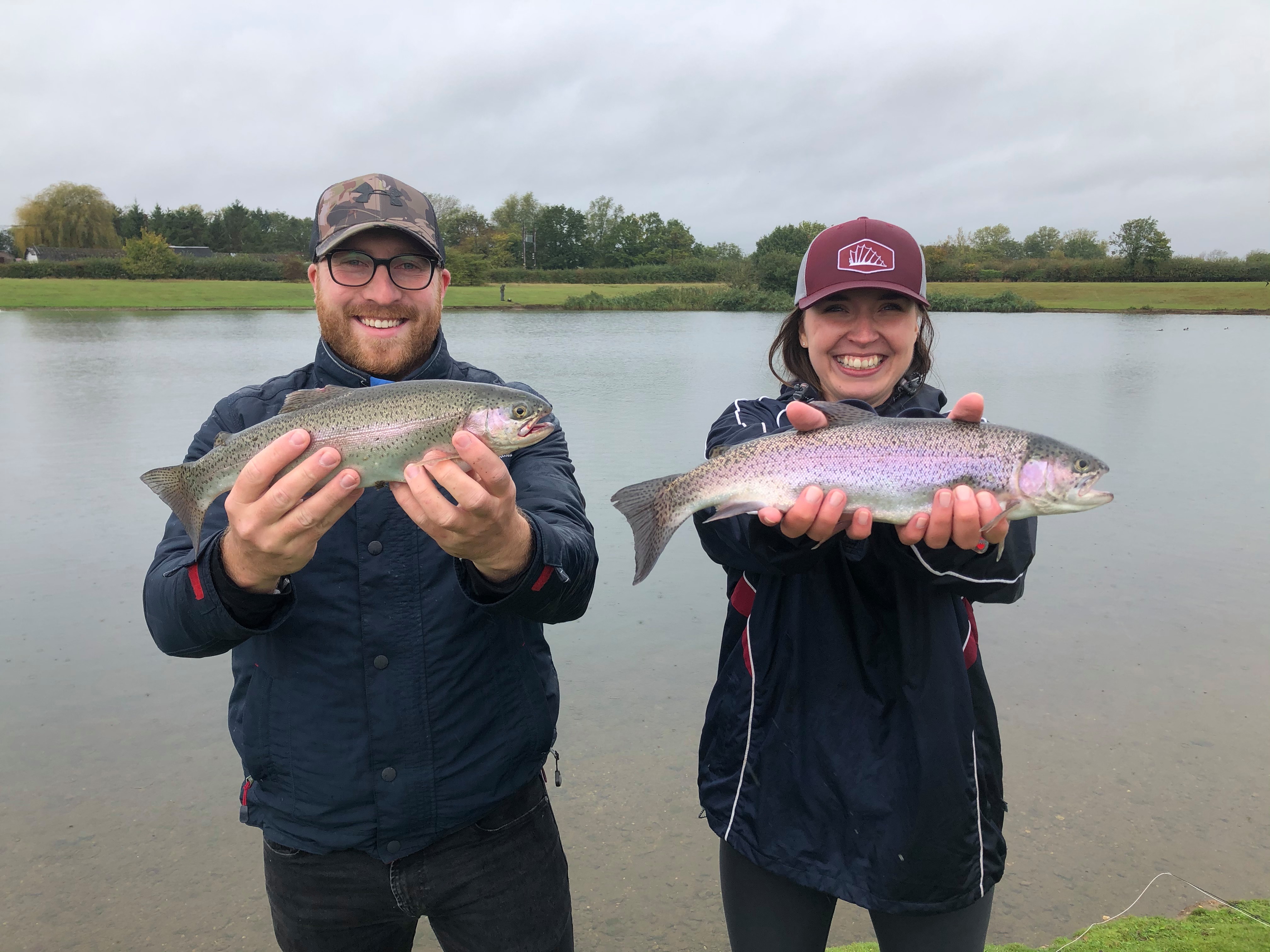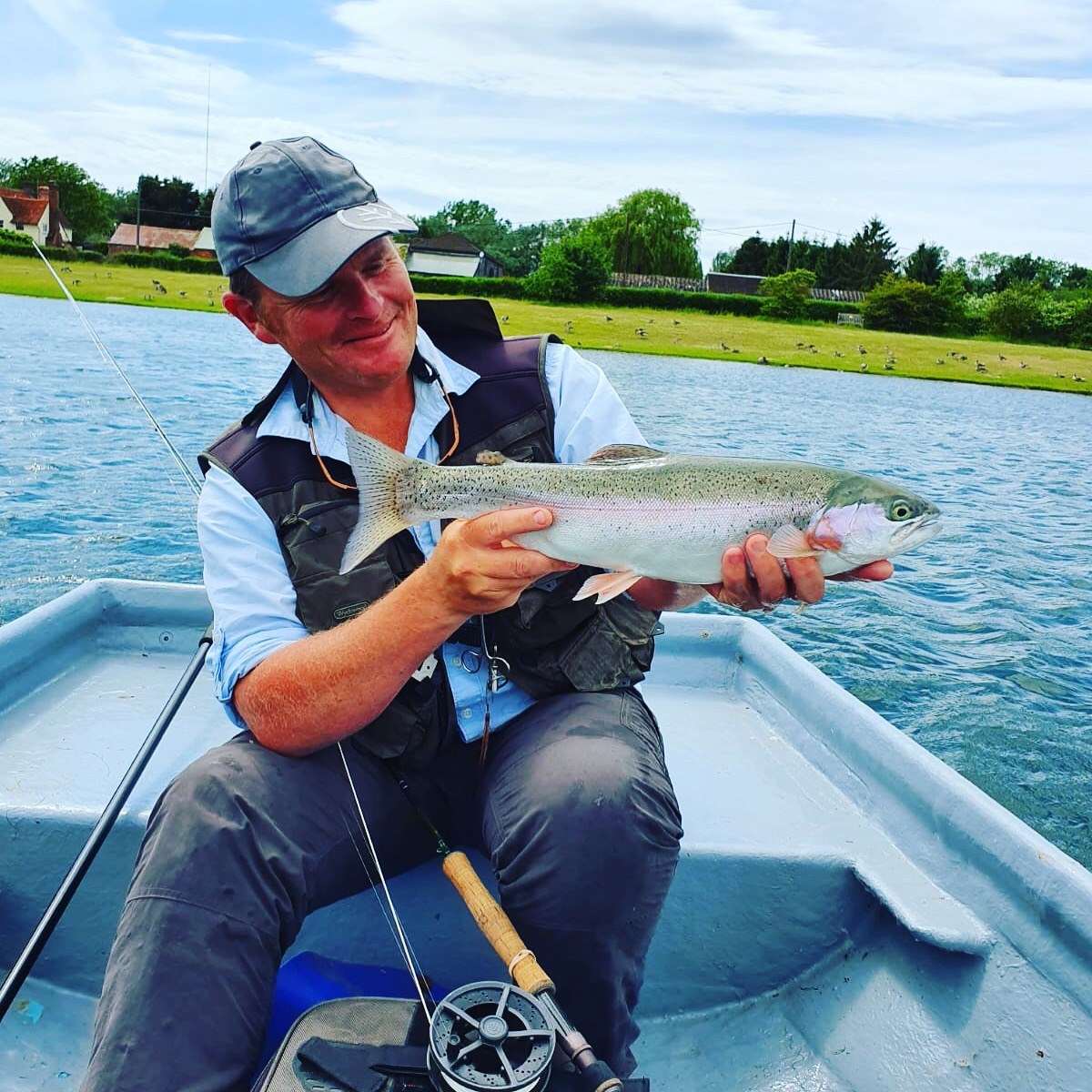Have you every been interested in taking up fly fishing but don’t know where to start? Maybe you are already a fly angler and want to improve your skills? Having a day out with a professional fly fishing guide can prove invaluable. Wychwood Game caught up with professional guide and Wychwood ambassador Tim Joyce for an insight into a day in the life of a fly fishing guide.
WG: When a beginner is learning to cast a fly rod for the first time what are the first things that you look out for?
The most important thing for me is to put my client in a position where they can feel the fly rod loading. This is key to casting. Once they feel the energy being transferred from line to rod then the rest usually falls into place. I also encourage the client to concentrate on presentation and trying to get the leader and line to turn over and lay straight as oppose to going all out for distance and power.
So I am looking for good tracking in the arm forwards and backwards. Smooth rhythm in the forward and back cast with nice pauses. Minimal wrist break. And not slipping too much line into the false cast. These are the usual things I concentrate on to get a beginner going nice and quick. Of course, the above is relayed in a fun, easy to learn short hour-long session before the all-important fishing begins!

WG: When guiding on a small still water, what are 5 flies that you would not be without in your fly box?
Cats whisker, one of the best and most reliable lures in the box. Works everywhere, a great searching lure rarely ignored by trout.
Orange blob, because the trout love them!
Crisp packet Buzzer, the biggest part of the trout’s diet in this country and present in the water all year long.
CDC /Sugar cube dry, as above a great emerging buzzer pattern for when the fish are feeding in the surface layers
Blue Flash Damsel, reliable, tried and tested lure and great when the fish have seen a bit of pressure.

WG: What is the most memorable moment in your guiding career?
I have had many, many great days out with clients, some big catches, big fish and always a lot of fun. It’s always very satisfying to see improvement with clients that book me regularly. I try to make my coaching sessions progressive and varied the goal being to widen the client’s skill set and abilities.
A recent moment that stands out. I was asked by a parent of a keen young fly fisherman if I could give him some competition coaching with the aim of him entering the Angling Trust England youth national eliminators.
We worked hard together over a couple of trips, he was already a talented well balanced angler, and I was made up when he came second in the National final and qualified to represent England in the youth Internationals .
WG: What inspired you to become a Fly Fishing Guide and Coach and what do you enjoy the most about your job?
I think it’s the dream of every keen angler to make a living from the sport they love. Putting something back into a sport that has given me so much over the years is something I am passionate about. You meet so many different people from wildly different backgrounds which prove just what a leveller fishing can be. I enjoy sharing my enthusiasm, knowledge and love for fly fishing with others and I am very fortunate to have been able to turn it into a career .It hasn’t been something that happened over night. But I am very lucky to have a great, regular client base and very friendly and supportive fishery owners and staff that have encouraged me along the way.

WG: What advice would you give a beginner interested in trying fly fishing for the first time.
Do it! Get involved! Seek the advice of a local fishery. Owners and staff are always friendly and helpful and encouraging. Join a local fishing club if you can, again club members are a great source of information and advice, most clubs often hold beginners days giving free teaching and tackle talks. Join up to the social media pages, they are always very active with some excellent threads to follow and advice given.
If you can afford to book a professional like myself for an introductory lesson, you will find it invaluable.
Most of all, make the time, get out to your local water on a regular basis. The only real way to learn and improve is to put the hours in on the bank.
Fishing isn’t a quick fix sport, its highs and lows and can be hugely frustrating at times. However, on the flip side you get to immerse yourself in a new environment, learn a new skill set. And you are always learning something new on every outing.
Importantly have fun, switch off from the outside world and enjoy!

